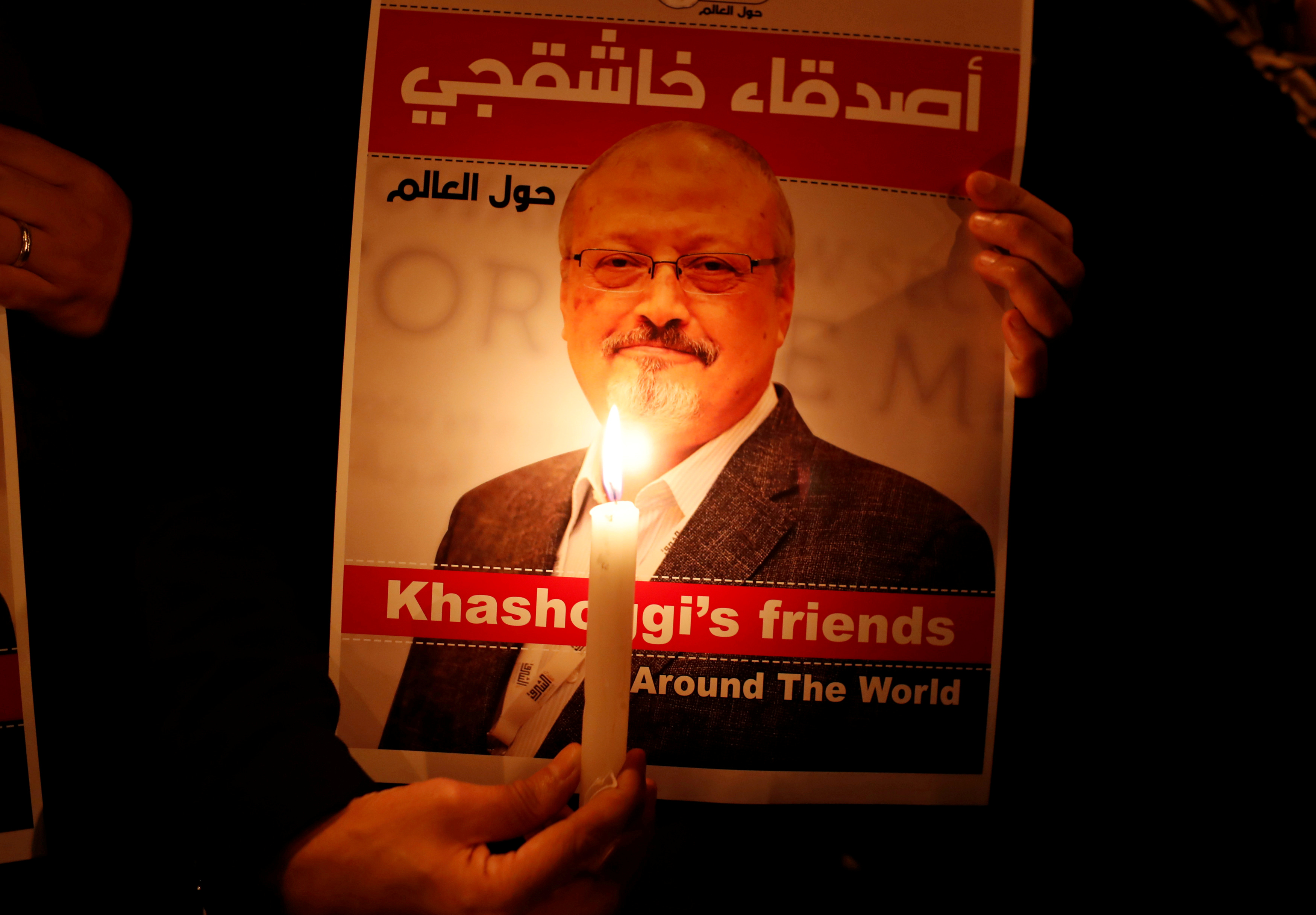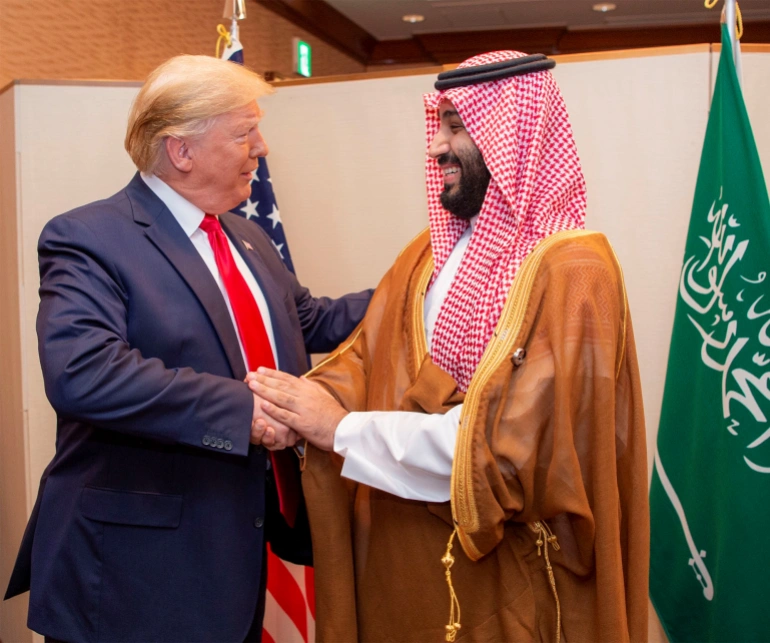Washington Names Saudi Embassy’s Street After Late Jamal Khashoggi

The Washington, D.C. City Council voted Tuesday to commemorate Saudi journalist Jamal Khashoggi, who was killed at his country's consulate in Istanbul in 2018, by naming a part of New Hampshire Avenue in front of the Saudi Embassy in Washington after his name.
Municipal legislators in Washington passed a bill Tuesday, December 7, 2021, to change the street’s name to Washington Post’s journalist and Saudi critic murdered in 2018 at the Saudi consulate in Istanbul.
The council voted unanimously in memory of the Saudi journalist, and the Saudi embassy did not comment on the move by the U.S. capital's municipal council.
The City Council measure is expected to be signed shortly by Washington Mayor Muriel Bowser and, as with all D.C. legislation, will then go to Congress for a 30-day review before becoming law. But D.C. officials have indicated that they expect to unveil the new signage in a public ceremony next month.
The Saudi Embassy, where the signage will be installed, is directly across the street from another Washington landmark known for scandal: the Watergate hotel.
"Washington City Council renames street in front of embassy after Khashoggi.
— Ghada Oueiss غادة عويس (@ghadaoueiss) December 9, 2021
The idea is to remind the world of the dangers faced by journalists all over the world and a free press is “fundamental to our democracy,” according to Councilmember Brooke Pinto" https://t.co/OsTqyawvnT
Steady Memorial
"Through his journalistic work, Jamal Khashoggi was a defender of democracy, human rights and the rule of law," the council said in a report.
"By naming Jamal Khashoggi on the front street of the Embassy of Saudi Arabia, the province is creating a memorial to him that cannot be covered up or suppressed," the report added.
The idea behind the bill, which passed unanimously, is to remind the world of the dangers faced by journalists all over the world and that a free press is “fundamental to our democracy,” according to its chief sponsor, Councilmember Brooke Pinto.
“Renaming the street in front of the Saudi embassy in honor of Khashoggi will be an important gesture in support of accountability for his brutal murder,” said Sarah Leah Whitson, executive director of Democracy for the Arab World Now (DAWN), a human rights organization Khashoggi founded shortly before his death, according to NPR.
This is not the first time Washington made such a move, on 2018, Washington named a street in front of the Russian embassy as Boris Nemtsov in honor of being a fierce opponent of Russian President Vladimir Putin, who was assassinated three years ago in Moscow.
On the same week we got a final NDAA with all House-passed sanctions on the killers of #JamalKhashoggi completely erased, the city council of Washington, D.C., voted to rename the street in front of the Saudi embassy “Jamal Khashoggi Way.” https://t.co/VDyoS4zxkC
— John M. Donnelly (@johnmdonnelly) December 9, 2021
Planned Murder
Jamal Khashoggi, a former close associate of the Saudi leadership, was killed until he became one of its most vocal critics at his country's consulate in Istanbul by a team from the kingdom. A team strangled him and dismembered his body, which had not been found.
A June 2019 report by Agnes Callamard, the United Nations special rapporteur on extrajudicial killings, determined the assassination order came from the highest levels of the Saudi government.
The report also said “credible evidence” existed to justify an investigation into the “individual liability” of high-level officials and royal family members—including MBS.
But during Donald Trump’s presidency, he mentioned that he personally rejected calls to rebuke MBS for the murder, including from top Republican lawmakers.
Furthermore, he later reportedly told journalist Bob Woodward he had “saved” the crown prince from U.S. legislators.
After initially denying the assassination, Riyadh returned and acknowledged that Khashoggi had been killed by agents who acted on their own.
Tense Relations
Meghan O'Sullivan, Professor of the Practice of International Affairs, wrote on Bloomberg that “the Biden team has taken a number of steps to ensure that the crown prince, known widely as MBS, will pay some price for his role in the murder.”
“The measures may be less dramatic and bold than sanctioning him directly, but they are significant,” he expected.
“The gap between American values and American policy toward Saudi Arabia under Trump was a major problem, and the Biden administration is correct to seek to close it,” he added.
According to Richard Haass, former director of Policy Planning for the U.S. State Department, President Joe Biden’s administration appears determined to separate America's relationship with the Kingdom from the relationship with Crown Prince Mohammed bin Salman.
“It should be a long time before the now publicly-exposed MBS is invited to the U.S., much less to visit the Oval Office. But refusing to deal with him is not the answer,” he mentioned.
“Pragmatic, conditional relations with him could bring protection and freedom to many Saudis, make possible collaboration to impede Iran’s nuclear ambitions, wind down the war in Yemen, and advance prospects for Israeli-Palestinian peace. None of this would bring Khashoggi back to life, but it would give added meaning to his death.”
Rami Khouri, Senior fellow of Belfer Center’s Middle East Initiative, sees that “the Biden administration's responses to American policy challenges in Saudi Arabia and Iran-in-Syria—sanctions, military strikes, threats, tough talk—are unimpressive, repetitive of previous U.S. administrations, and thus likely to fail.”
“If Washington wishes to deter premeditated murder and gross human rights abuses by Middle Eastern regimes it must dramatically show its abhorrence of the Saudi crown prince’s murder and cover-up by implementing the ‘pariah’ option: refuse to engage in any activity that the crown prince or his office initiate,” he said.











